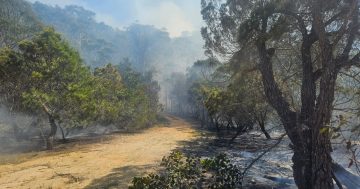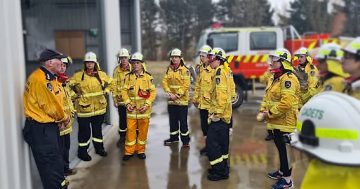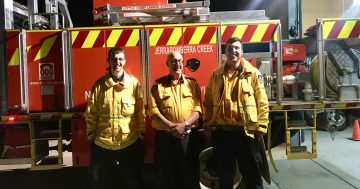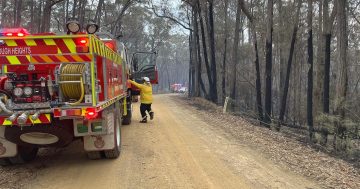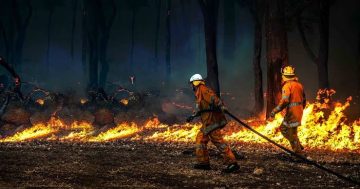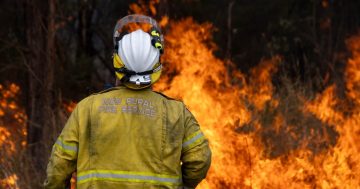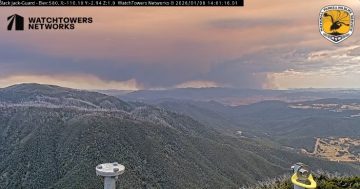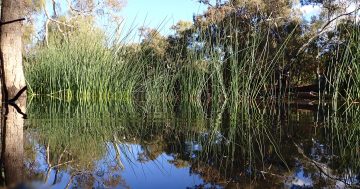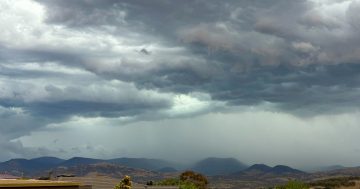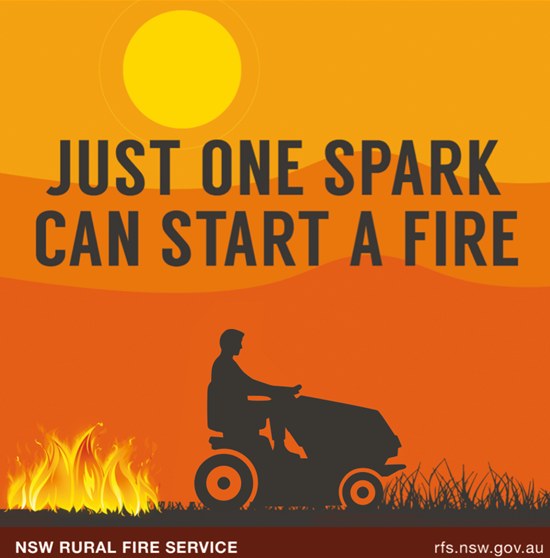
Just One Spark campaign poster says it all. Image: RFS NSW.
Many Australians breathe a sigh of relief when the end of summer brings an end to fire bans and high bushfire warnings, but the Rural Fire Service (RFS) is warning against complacency.
Monaro RFS Inspector Langdon Gould says grass fire risks will be increasing in the Capital region as we move into the winter months.
“The dried grasses from the spring/summer period are still dry and combustible,” he says.
“Frost curing adds another level of dryness to those fuels. The fuels are at such a combustible level, fire easily spreads with or without the aid of wind.”
Frost curing occurs as frosts settle after sub-zero nights in the Capital region and surrounding areas.
The condition pulls moisture out of the stalks, leaving a dry kindling ready for a single spark to ignite a grassfire. It provides one of the many firefighting challenges during narrow windows for the RFS to safely conduct hazard reduction burns.
Monaro RFS deals with an increase in grass fires each winter as accidents regularly spark out-of-control fires.
Hot works are the biggest culprits, machines such as angle grinders that create heat and sparks, but even ride-on lawn mowers and car exhausts can spark out-of-control fires when the grass is dry.
“Welding, grinding, introduction of heat sources like vehicle exhaust, catalytic converters, DPS, diesel particulate filters on vehicles have all been shown to start fires. Good maintenance can reduce that risk,” Inspector Gould says.
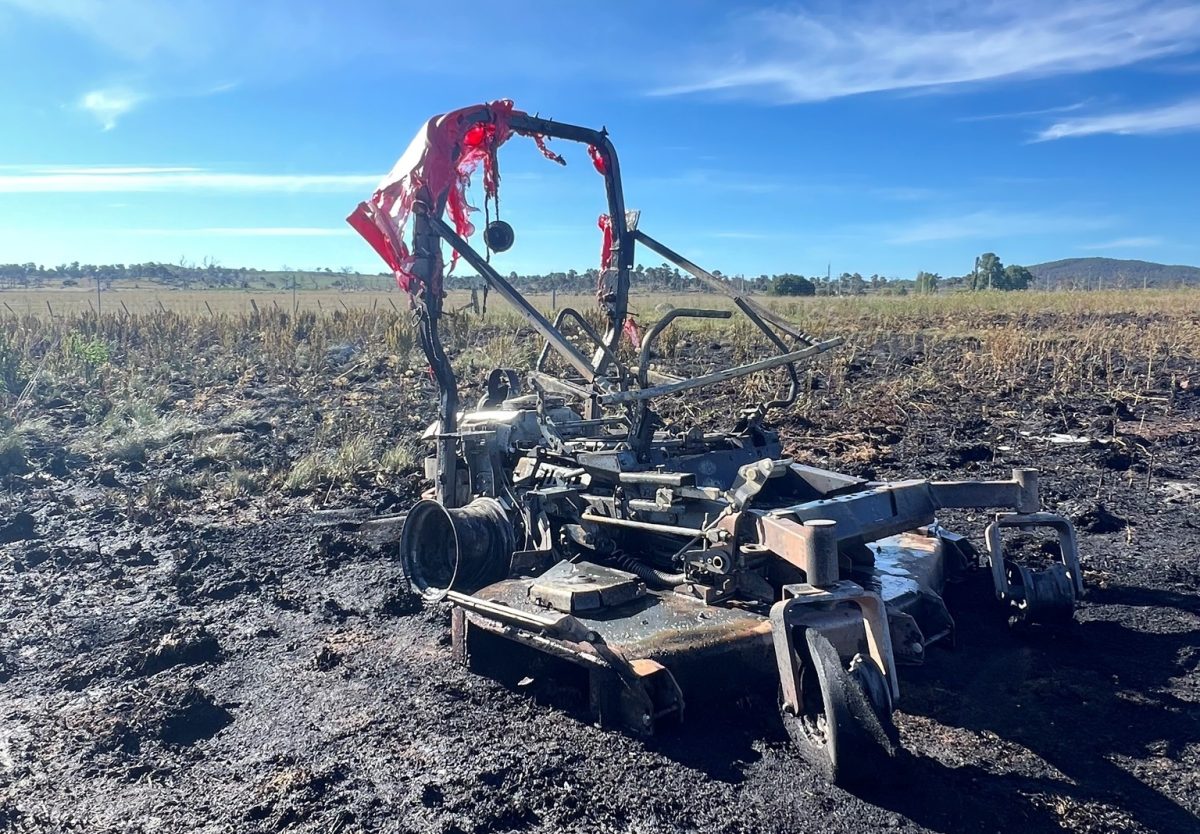
A burnt lawn mower from a grass fire south of Canberra. Photo: RFS NSW.
The RFS now runs a Just One Spark campaign to educate landholders how easily grass fires can start.
The organisation says simple precautions such as carrying fire extinguishers, keeping machinery clean and doing high-risk work early in the morning greatly reduces risk.
Inspector Gould says it’s also important to notify the RFS when conducting planned burns.
“Notification to direct neighbours and the RFS of at least a minimum of 24 hours is required all year round.”
He says grass fires are not as destructive and don’t spread as aggressively as bushfires, but the damage can still be devastating and kill livestock, damage fencing and buildings.
Landholders should identify the risks and take appropriate precautions in winter, he says. They can contact the RFS for advice.
Original Article published by Nicholas Ward on Region Canberra.







